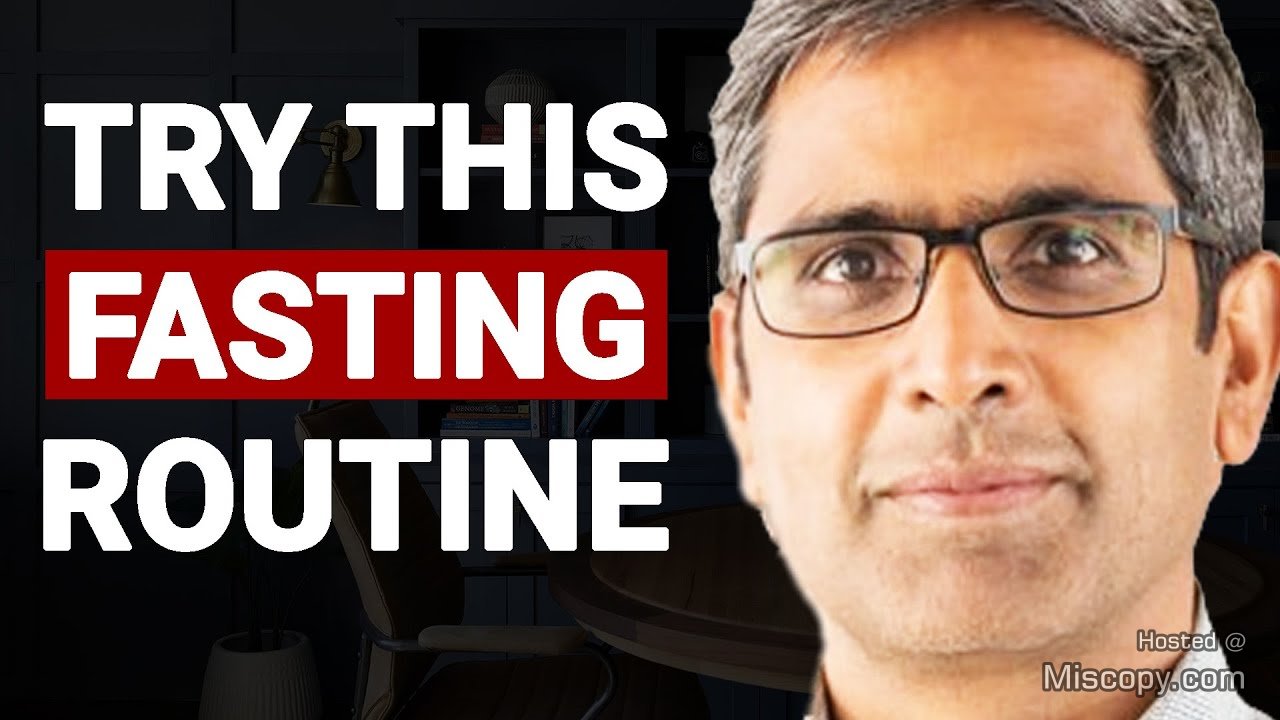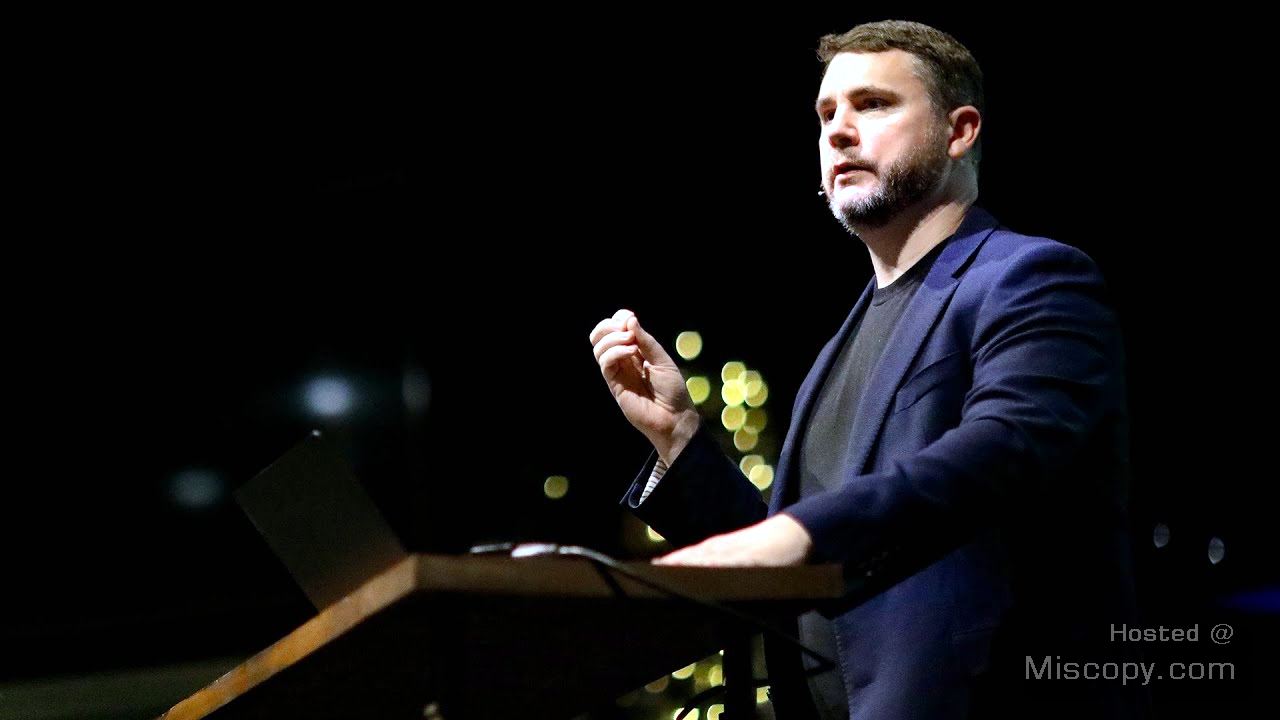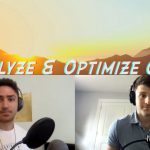Dr. Satchin Panda emphasizes the importance of circadian rhythms in regulating daily activities of our body and how our eating and sleeping habits can impact them. He explains that late-night eating can have negative consequences on digestive processes, blood glucose levels, insulin production, and overall metabolic health. Disrupting our circadian rhythm can lead to metabolic and cardiovascular diseases, and he stresses the importance of consistent sleep and its effect on decision-making abilities. Dr. Panda also discusses the impact of time-restricted feeding on sleep quality and brain health in both mice and humans, and encourages personal experiments to find out what works best for our bodies in terms of food, exercise, and sleep.
Dr. Satchin Panda also highlights the optimal time for exercise and the importance of understanding circadian biology for exercise timing. Late afternoon or early evening exercise is ideal as it helps muscles absorb glucose with little to no help from insulin and can benefit individuals fighting pre-diabetes or Type 2 diabetes.
Later, Dr. Satchin Panda emphasizes the significance of light in establishing and maintaining circadian rhythms, including how lack of access to natural light can be detrimental to people’s health. He also discusses the challenges faced by shift workers and shares studies on the potential benefits of time-restricted eating for firefighters. Dr. Panda highlights the role of public policies in promoting healthy habits, especially for those in high-risk professions like firefighters. Ultimately, prioritizing lifestyle changes that foster good health can potentially reduce the prevalence of chronic diseases and promote healthier societies.
Dr. Satchin Panda recommends using blue light blockers to reduce exposure to blue light before bedtime but warns that they may cause some relationship issues. Dr. Panda emphasizes the importance of tracking habits and using technology to understand how habits affect health. He also discusses how time-restricted eating can lead to a decrease in toxic chemicals produced by the gut microbiome and sent to the blood, which could potentially improve understanding of how chemicals in the gut affect overall health and longevity.
More about Dr. Satchin Panda HERE.
00:00:00
In this section, Dr. Sachin Panda explains the importance of circadian rhythm, which is essentially a timed schedule of daily activities that happen in our body, such as fighting infections or rejuvenating injuries. Just as we organize our daily life around time, every cell in our body has its own 24-hour timetable. Dr. Panda explains that understanding this concept can impact our daily habits, increase the efficacy of medications and supplements, and potentially fix diseases. He also talks about how different organ systems have their own biological clocks, such as the circadian rhythm of digestion in the stomach and saliva production in the mouth, which can be impacted by when we eat and sleep.
00:05:00
In this section, Dr. Satchin Panda discusses the importance of circadian rhythms in digestion and how eating late at night can have negative consequences on the digestive process. The stomach becomes more sensitive at night, meaning that even a small amount of food can cause hyperacidity, leading to acid reflux. Additionally, the peristaltic motion of the intestines slows down during sleep, making it difficult for the body to digest and absorb nutrients. Dr. Panda explains that almost every single cell in our body has its own clock, and it’s crucial to organize our day around these clocks for optimal health. Late-night eating could also result in waking up feeling unrested, indigestion, and other related issues.
00:10:00
In this section, Dr. Satchin Panda discusses the negative effects of eating late at night on blood glucose levels and insulin production. The pancreas slows down insulin production late at night, and melatonin, which rises before bedtime, makes the pancreas less sensitive to glucose levels. Eating late at night may lead to higher blood glucose levels due to slowed insulin production, lack of proper absorption of glucose, and high insulin levels remaining in the bloodstream for too long, which may promote weight gain and disrupt metabolic health. Chronic late-night eating can exacerbate the problem by causing disruption to sleep and an increase in cravings.
00:15:00
In this section, Dr. Satchin Panda explains the adverse effects of disrupting our circadian rhythm, as shift workers often experience a high risk for metabolic disease, cardiovascular disease, heart disease, and cancer. He notes that anyone staying awake for two or more hours between 10pm and 5am and engaged in some form of work, whether it’s their job, watching TV, or on their mobile phone, is considered a shift worker. The majority of people experience circadian disruption at least a couple of times per week, making them shift workers. Dr. Panda also highlights that high school and college students are at risk because of remote learning, and women who become new mothers are signing up for shift work, as they have to wake up multiple times in the night to take care of their babies.
00:20:00
In this section, Dr. Satchin Panda discusses the importance of sleep in our daily lives and how it affects our decision-making abilities. He explains that sleep not only detoxifies the brain but also helps different parts of the brain to interact and communicate with clarity, which is crucial for taking information, processing it, and taking action. He highlights how a disrupted sleep pattern can lead to bad decision-making like unhealthy food choices, perpetuating more disruption in sleep, and leading to a cycle of bad habits. Dr. Panda emphasizes the need to understand the circadian rhythm to redesign our world and still maintain big physical, emotional, and intellectual performance while staying healthy.
00:25:00
In this section, Dr. Satchin Panda emphasizes the importance of lifestyle in health and highlights the impact of sleep on overall well-being. He notes the simplicity of getting enough sleep compared to investing in good food and exercise, but acknowledges the challenges of achieving it amidst distractions like Wi-Fi and mobile devices. As humans, we have the unique ability to control fire, which has allowed us to be active late into the night, sacrificing sleep. However, science has shown that teenagers benefit from delaying school start times to get more sleep. Though implementing these changes can be met with opposition, it is important to prioritize good sleep habits for better health.
00:30:00
In this section, Dr. Satchin Panda discusses a study done in two different schools, one in a relatively wealthy neighborhood and the other in a less wealthy one, to analyze the relationship between sleep and school start times. The study found that delaying the school start time by an hour led to students getting 34 extra minutes of sleep, improving their grades by 4.5%, reducing tardiness, and improving self-confidence. This ultimately led to California passing a law stating that all middle and high schools cannot start before 8:30 am. Dr. Panda also emphasizes the importance of private philanthropy in funding these research projects and how systematic research can prevent risking federal money on random ideas.
00:35:00
In this section, Dr. Panda discusses how waking up to an alarm clock consistently can disrupt our circadian rhythm and lead to sleep deprivation. To combat this, it’s important to listen to our body and give ourselves enough time to sleep without relying on an alarm clock. Dr. Satchin Panda also emphasizes the importance of small philanthropic grants and private donations in funding research and bringing new ideas to the forefront.
00:40:00
In this section, Dr. Satchin Panda discusses the importance of consistent sleep and the effect of alarm clocks on our biological clocks. People who get up early due to long commute hours or to meet work demands should be mindful that their bodies are not ready for food as the nightly hormone melatonin levels are still high, and the stomach and digestive system have not become ready to digest and process food. Also, strenuous exercises should be avoided in the morning if the body does not get adequate sleep. Panda explains that millions of people who wake up an hour early due to daylight saving time exhibit a spike in heart attack and stroke, indicating that waking up to an alarm can initiate a lot of stress on the body, which should be mitigated. Therefore, following a pre-sleep routine and sleeping early could help reduce stress from alarm clocks and improve metabolic health while reducing the risk of chronic illness.
00:45:00
In this section, Dr. Satchin Panda discusses the importance of sleep for overall health, particularly in young adults and children. He notes that sleep disruption begins in middle and high school when kids face pressure from peers and academics, leading to reduced sleep. This affects mental health and can cause anxiety, depression, and bipolar disorder, which has become a pandemic. Sleep debt accumulates when an individual sleeps less than the recommended seven to eight hours, and the body keeps track of lost sleep. Overconsumption of caffeine can also make us forget how much debt we have accumulated. Therefore, understanding and prioritizing sleep are critical for longevity and overall health as we age.
00:50:00
In this section, Dr. Satchin Panda discusses his personal experiment with caffeine intake and sleep deprivation, which led him to realize that he needs to sleep between 7 to 8 hours per night. He shares that people can do personal experiments, such as changing the timing, quality, or quantity of food, exercise, or sleep, to find out what their body needs. Additionally, he talks about the effects of sleep deprivation on fruit flies and mice, highlighting the link between sleep deprivation and the acceleration of neurodegenerative diseases like dementia. Furthermore, he mentions how the timing of food intake may also play a role in the development of such diseases.
00:55:00
In this section, Dr. Satchin Panda discusses the impact of time-restricted feeding (TRF) on mice and humans, particularly their sleep quality and brain health. According to a study done on mice with Huntington’s disease, eight hours of TRF improved their sleep quality which was surprising even for the researcher conducting the study. Additionally, the study conducted on humans found that TRF could improve brain health and sleep quality even for healthy individuals. The study found that after 18 weeks of TRF, which entailed eating for only ten hours and fasting for 14, the participants experienced a modest weight loss of 3.5%, and after a year, the participants still maintained their weight loss. Furthermore, they claimed that by following the TRF habit, they felt more energetic in the morning and worked at a higher performance level throughout the day.
01:00:00
In this section, Dr. Satchin Panda discusses the differences between studying mice and humans, specifically in regards to time-restricted eating. While mice do not have the free will to choose how much food they eat, their habits can still positively impact their health. In human studies, many participants report feeling a “food hangover” if they eat late at night and their body revolts when they do not engage in time-restricted eating. However, measuring the impact of sleep on time-restricted eating presents a challenge as it requires objective measurements of sleep, exercise, and food that are difficult even in mice, let alone humans. Finally, Dr. Panda notes that there is still room for research regarding the effects of aging on time-restricted eating.
01:05:00
In this section, the speaker discusses the challenges of studying aging in mice, which are often used as models for humans in biomedical research. He explains how older mice that are healthy and disease-free are much more expensive to obtain than younger mice, and highlights the lack of investment in studying the aging process itself. Age itself is the biggest risk factor for many diseases, yet we still don’t fully understand why it happens. Additionally, the degradation of sleep quality and circadian rhythms in older age can put us into a vicious cycle that further exacerbates health issues. The speaker characterizes our journey through life as passing through different “modes”, where we are essentially on self-driving mode as children, on cruise control through adulthood, but on manual drive mode in older age where we need to pay closer attention to our health and wellbeing.
01:10:00
In this section, Dr. Satchin Panda discusses the importance of sleep for overall health and longevity. Sleep deprivation can increase the risk of various health issues, including cancer and poor cognitive function. While it can be challenging to develop healthy sleep habits, it’s crucial to prioritize sleep by keeping a consistent bedtime, resisting the urge to use a phone before sleep, and investing in tools like cooling pads to regulate body temperature. Additionally, creating a culture of health involves sharing information about the negative consequences of poor sleep while also offering practical tips for increasing sleep quality and quantity.
01:15:00
In this section, Dr. Satchin Panda discusses the importance of maintaining a cool temperature in the bedroom to ensure quality sleep. He advises avoiding bright lights and food for two to three hours before bedtime, and paying attention to what may be causing you to wake up in the middle of the night. If you wake up for less than 15 minutes, it is nothing to worry about. However, if you cannot go back to sleep for an hour or more, it may be cause for concern. Dr. Panda also shares his personal hacks for falling back asleep, such as silent meditation and counting backwards from 500. Additionally, he suggests avoiding phone use during the middle of the night.
01:20:00
In this section, Dr. Satchin Panda discusses the importance of personalized Precision Health when it comes to sleep. He mentions that different people have trigger points that affect their sleep and that it’s crucial to figure out what works best for each individual. To aid in this process, Dr. Panda’s team created the MyCircadianClock app, where individuals can voluntarily share their lifestyle data—including sleep habits—with researchers. The app asks participants to rate the quality of their sleep and to identify the three main reasons for any sleep disruptions. With hundreds of thousands of people sharing their data, Dr. Panda’s team hopes to glean insights that will help people develop more personalized sleep strategies.
01:25:00
In this section, Dr. Satchin Panda and his guest discuss the impact of pets and partners on sleep. While pets can be comforting, they can also disrupt sleep and cause nightmares. It is recommended to have pets sleep outside the bedroom to improve the health of both the pet and the owner. In addition, partners who share a bed can have different temperature preferences or snoring issues that impact sleep quality. To address this, having separate duvet covers can help regulate temperature and reduce disturbance from tossing and turning. Finally, exercise is shown to improve sleep quality and people who exercise regularly report better sleep than those who don’t.
01:30:00
In this section, Dr. Satchin Panda discusses an experiment conducted at UCLA where researchers discovered that mice without a clock gene slept randomly, only waking up to eat for one or two hours, whereas mice with only a muscle clock were able to sleep and wake up regularly. This revelation has led Dr. Panda to conduct a new line of research in his lab, exploring the signals sent from muscle tissue in response to exercise and how they affect our gut microbiome, digestion, metabolic health, brain health, depression, anxiety, and more. By narrowing down the genes expressed in muscle tissue to a shortlist of 2-300 proteins and hormones, researchers can discover their effects on sleep and, in the future, perhaps develop a new type of medication, more specific to sleep than current medications like Ambien.
01:35:00
In this section, Dr. Satchin Panda discusses the relationship between exposure to outdoor light during the daytime and improved sleep at night. Research conducted in Japan showed that volunteers who received 5,000 Lux of outdoor light during the day had higher levels of melatonin at night, which improves sleep. Dr. Panda explains that even on cloudy days, outdoor light can provide enough stimulation to improve a person’s evening melatonin and make it easier for them to fall asleep. Additionally, light is known to be an effective antidepressant and lack of light is known to cause depression, as seen in Nordic countries during their long, dark winters.
01:40:00
In this section, Dr. Satchin Panda discusses the importance of getting enough light exposure. Unfortunately, there are not many smartwatches that can measure light, even though people believe they are getting enough light exposure. According to studies, more than 75% of participants don’t get enough light outdoor, with less than one hour of bright light exposure, while we should aim for at least one hour. Sunglasses can also reduce light exposure by 80 to 200 fold, and we mostly stay indoors or go from our kitchen to the garage and then drive. Dr. Panda advises us to stack behaviors and try to find ways to walk an hour a day as it can improve our metabolic health and sleep pressure.
01:45:00
In this section, Dr. Satchin Panda emphasizes the importance of light exposure, especially in the morning, to synchronize our internal clocks with outside time. He notes that a lot of people have been spending too much time indoors due to the pandemic and remote work, causing poor mental and physical health. Dr. Panda recommends spending a few minutes outside in the morning to get some fresh air and sunlight, as it has been proven to be the best antidepressant and improves our sleep quality. He also mentions that almost 80% of people will experience depression or low mood in their lifetime, making it crucial to prioritize light exposure as one of the factors to manage our overall health.
01:50:00
In this section, Dr. Satchin Panda discusses the benefits of outdoor exercise and the importance of social support systems. He emphasizes the optimal time for strenuous exercise and highlights the importance of understanding circadian biology for exercise timing. He recommends late afternoon exercise since our body is more ready at that time, joints are more flexible, lung capacity is higher, and heart pumps much better. Moreover, late afternoon exercise is more effective in reducing and normalizing blood pressure and blood sugar levels than morning exercise. Therefore, it is essential to understand circadian biology for exercise timing.
01:55:00
In this section, Dr. Satchin Panda discusses a study where individuals with Type 2 Diabetes wore continuous glucose monitors to determine the effects of exercise on their glucose levels. The study found that those who exercised in the afternoon had a significantly reduced 24-hour glucose level compared to those who exercised in the morning. When the pancreas produces insulin for the first half of the day, it’s much more efficient, producing less insulin for food consumed later in the day. Late afternoon or early evening exercise helps muscles absorb glucose with little to no help from insulin, making it ideal for individuals fighting pre-diabetes or Type 2 diabetes. It doesn’t have to be intense exercise, and even taking a brisk walk for 10 to 15 minutes before or after dinner can provide benefits. In general, any regular strength training, even two to three times a week, can help maintain muscle mass and provide overall health benefits.
02:00:00
In this section, Dr. Satchin Panda discusses the history of afternoon exercise and circadian rhythm, specifically how West Coast teams have an advantage when playing Monday night football on the East Coast due to peak performance times. He also shares how athletes plan their travel and practice schedules based on optimal performance times, and how it can make the difference between winning a gold medal or not. Additionally, Dr. Panda shares a tweet where he states that exercise is the best insurance against cancer, noting that exercise reduces the risk of many types of cancer, and he questions why muscle cells are immune to cancer, suggesting that it may be due to intrinsic factors or anti-cancer molecules.
02:05:00
In this section, Dr. Satchin Panda explains why muscle cells are resistant to cancer and how physical activity increases resilience against the disease. Muscle cells are the largest organ in the body and the biggest user of glucose, and yet they are not affected by muscle cancer. Through research, it may be possible to identify what protects muscle cells and understand what muscle cells produce when we exercise that reduces the risk of cancer. Furthermore, people who are going through cancer treatment, if they can exercise, can accelerate their prognosis, reduce adverse side effects of cancer drugs, and have better outcomes. Many cancer survivors also face other problems during cancer treatment.
02:10:00
In this section, the discussion revolves around the benefits of exercise and time restriction, particularly for cancer survivors. It is highlighted that almost 42% of people are likely to get at least one cancer diagnosis in their lifetime. The experts underline the significance of reducing the risk by exercising at least 30 minutes a day, even if it’s not on a daily basis. While there’s an increasing trend of people moving towards a Western diet, lifestyle, and a disrupted sleep cycle, cohesively, they all become a significant contributor to heart and brain-related ailments leading to a higher risk of cardiovascular diseases and type-2 diabetes. In this context, it is suggested to start a healthy lifestyle from an early age, focusing on the circadian rhythm that every cell in our body follows, particularly for pre-term babies.
02:15:00
In this section, Dr. Satchin Panda discusses a study where researchers discovered that pre-term babies in NICUs tended to spend up to 13 days less in the hospital when exposed to a simulated dim light and bright light cycle, which improved their growth and development. This simple light-dark cycle was done by partially covering the cribs with a blanket to allow for around 20 lux of light, which is equivalent to having about 20 candles in a row. This practice can be easily implemented and has already become a common standard of care in NICUs in Mexico City, making it possible to advance the long-term health of the babies, lower the incidence of complications, and reduce parental anxiety.
02:20:00
In this section, Dr. Satchin Panda discusses the challenges of sleep and care in ICUs, highlighting the lack of sleep patients typically receive, the constant light, and the frequent interruptions from beeping machines, among other things. He explains that all of these factors combined would meet the definition of criminal torture if done to a healthy person in a normal setting. One-third of patients who are admitted to the ICU develop delirium, and many patients express a desire to leave the ICU as soon as possible due to the lack of context, sense of time, and pain. By implementing circadian lifestyle changes in ICUs, such as changes in lighting and sleep schedules, it is possible to make a significant impact on patient health and outcomes, especially for those with sepsis and other serious conditions. Dr. Panda also advocates for the implementation of circadian lifestyle changes for post-ICU patients to improve their sleep and overall health outcomes.
02:25:00
In this section, Dr. Satchin Panda discusses the importance of light and how it affects our circadian rhythm. He notes that less than 5% of people in any organization have access to a window, which can be detrimental to their health. Glass is the best way to bring light indoors and it has become a load-bearing factor in new buildings, allowing for bigger windows. However, glass wasn’t initially popular because it is fragile, it leaks, and it’s harder to be Green certified. Dr. Panda also mentions that bringing a sense of time into a workplace is important for circadian rhythm and that the Academy of Neuroscience for Architecture has been established to develop architectural designs that can improve brain health. Overall, architecture can bring us back to our ancestral living by implementing changes that benefit our circadian rhythm and brain health.
02:30:00
In this section, Dr. Satchin Panda suggests that building codes should contain a provision for access to light, as light is critical to the circadian rhythm. He also emphasizes the significance of timing in medication, vaccination, and chemotherapy, discussing how circadian rhythm affects the response to treatment and the severity of resulting illness. For instance, studies show that vaccination in the morning is more effective in vaccination kicking in faster and with higher potency than the one given late in the afternoon. Those with regular and sufficient sleep cycle tend to respond better to chemotherapy and have a better prognosis if they have breast cancer. Overall, implementing such practices can significantly multiply the beneficial effects of healing and boost overall well-being.
02:35:00
In this section, Dr. Satchin Panda discusses the impact of sleep and eating habits on circadian rhythms and overall health. He highlights the importance of prioritizing low-cost or no-cost lifestyle changes that could benefit everyone, such as sleeping for seven and a half hours and implementing healthy eating and fasting cycles. Dr. Panda emphasizes that public policies can play a role in creating opportunities for health, particularly with regards to shift work schedules, which were designed for the convenience of employers rather than employees’ health needs. By prioritizing basic lifestyle changes that promote good health, society can work towards a future where chronic diseases and health inequalities are less prevalent.
02:40:00
In this section, Dr. Satchin Panda discusses shift work and how it affects people in different professions. Shift work affects more people than we think, as one in five Americans are shift workers. However, the standardization of their work hours is often overlooked. People in different professions have different shift schedules, and some may switch between day and night shifts frequently, making it challenging to maintain a healthy lifestyle. Dr. Panda explains that it is politically sensitive to determine which shift is more detrimental to the body, as it varies based on the person’s lifestyle and individual factors. Objective data is necessary to understand the effects of shift work, and further studies need to be conducted.
02:45:00
In this section, Dr. Satchin Panda discusses the health risks that firefighters face, such as heart disease, stroke, and cancer due to exposure to toxins and stressful situations. To combat these risks, Dr. Panda conducted a study asking if firefighters could adopt a 10-hour time-restricted eating schedule. The study was based on a 2012 study that found mice on a bad diet who ate within an 8-hour window were resistant to many diseases. The mice in the study consumed the same number of calories as the control mice who ate throughout the day. The 8-hour window also served as a good spot for convenience, as people typically work 9-10 hours a day. However, further studies have shown that 8, 9, or 10-hour eating windows in mice have similar health benefits, and people tend to drift towards a 10-hour window after several weeks.
02:50:00
In this section, Dr. Satchin Panda discusses the “Healthy Hero” study that aimed to explore the benefits and risks of time-restricted feeding on firefighters. The study, which involved 155 firefighters, was considered a high-risk project due to concerns about the firefighters’ energy levels, immune system, and overall health. However, the study found that time-restricted feeding did not have any adverse effects on the firefighters’ health, including those with pre-existing health conditions. The study also shed light on the stressful lives of firefighters and their limited ability to adopt healthy lifestyles due to their demanding work schedules.
02:55:00
In this section, Dr. Satchin Panda discusses a clinical trial conducted on firefighters to determine the effects of time-restricted eating on their health. Shift work increases the risk of disease, and less than one percent of clinical trials aim to improve the lives of shift workers. The study found that 10-hour time-restricted eating was feasible for firefighters and did not reduce the quality of their work. Additionally, those who did time-restricted eating had better sustained brain health and were better able to observe emotional stress at work, whereas the control group’s brain health deteriorated during the study. This is significant for firefighters who deal with constant stress while on the job.
03:00:00
the firefighters even started implementing healthier eating habits at home. In a study conducted on firefighters, it was found that when they self-selected a 10-hour eating window that started between eight and eleven in the morning, they ate a healthy breakfast and lunch and a little dinner around six o’clock. Surprisingly, they were more disciplined about their food while at work than at home. In addition, reducing alcohol intake and eating a Mediterranean diet led to a reduction in high blood pressure, high cholesterol, and inflammation. The study showed that following a healthy lifestyle can create a positive culture within a family or workplace.
03:05:00
In this section, Dr. Satchin Panda discusses a documentary project he started about firefighters and their circadian rhythms, which has inspired many people and won various awards. He also mentions that shift workers, such as firefighters, are carrying a considerable burden for society and need our support and care. He suggests that even for those in stress-filled and shift-based occupations, like doctors, nurses, and truck drivers, following time-restricted feeding can provide a sense of resilience. Dr. Panda offers two apps, the Research App and OnTime Health, to assist people in applying circadian rhythms to their normal schedules.
03:10:00
In this section, Dr. Satchin Panda discusses simple strategies that can improve your health and longevity. He suggests starting with a 10-hour feeding window and gradually decreasing it to 8 or 9 hours for some people. He recommends having a consistent breakfast time and avoiding changing it as it can cause metabolic jetlag. Dr. Panda also stresses the importance of getting sunlight for brain health and exercise for at least 30 minutes a day. Additionally, he advises avoiding light for 2 to 3 hours before bedtime and dimming the lights significantly to help with circadian biology.
03:15:00
In this section, Dr. Satchin Panda and Joe Rogan discuss the effects of light and blue light blockers on sleep. They suggest dimming lights throughout the home and using NightLight or manual red shift features on electronic devices to prepare for sleep. Dr. Panda recommends using blue light blockers to reduce exposure to blue light before bed. He notes that good blue light blockers block all blue light, making it difficult to use electronic devices, and that older people might benefit more from them than younger people. Dr. Panda personally uses blue light blockers and feels relaxed and sleepy once he puts them on, but he warns that they may cause some relationship issues, especially if one partner falls asleep first.
03:20:00
In this section, Dr. Satchin Panda explains the importance of tracking simple habits such as eating at the right time, getting enough sleep, and exposing oneself to morning light. By monitoring and making changes in these areas, people can understand how their habits influence their health. He recommends using technology such as on-time apps to help track these habits and identify what works best for each individual’s natural circadian rhythm. People can follow Dr. Panda on Twitter for updates on his latest research and consider donating to The Institute to support further studies. These donations can help analyze the blood samples collected from studies and isolate the impacts of specific lifestyle changes, which will help develop more personalized interventions.
03:25:00
In this section, Dr. Satchin Panda discusses how time-restricted eating can lead to a decrease in toxic chemicals called TMAO that are produced by the gut microbiome and sent to the blood and linked to different kinds of cancer. Although this is a new area of exploration, the study has shown that when people undergo time-restricted eating, TMAO levels tend to go down, suggesting that there is a link between gut microbiome and how chemicals are processed in the gut. This research can pave the way for further studies on this subject and potentially improve the medical field’s understanding of how chemicals in the gut affect our overall health and longevity.






